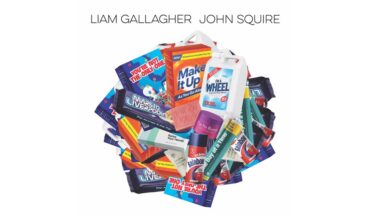A comparable set to the Blur vs Oasis rivalry of the mid-nineties is not likely to happen again in our lifetime. For those that remember it – and it is with trepidation that I face up to the fact that a modern-day eighteen-year-old only had to be born in 1997 – it was one of the most bizarre, pantomime-esque, and downright exciting moments in contemporary music.
It’s a shame that the reaction against eighties synth-led popular culture ultimately coined the rather flaccid term ‘Britpop’, but it did nonetheless and now we’re stuck with it. And yet what is unique about the Blur/Oasis feud (which culminated in the race to the number one spot with ‘Country House’/‘Roll With It’) is that it did represent something quintessentially British, without knowing exactly how. Parklife pundits at the time pointed to the north/south divide that separated the musicians – but as well as being blatantly obvious in the one sense, it simply wasn’t true: as a nine-year old I understood as well as any pilled-up teenager that people daan’ saaaf’ could like Oasis more than a northerner and vice-versa (alright… perhaps the northerners were generally Gallagher fans, but that’s beside the point).
The truth is, there were no clear divisions; no easily drawn lines. Unlike the singers of a decade before, Damon Albarn and the Gallagher brothers sang with their own accents, and both were beguiling in their own slightly annoying ways: both nasal, often elongated, often exaggerated for effect. With hindsight, it was a strange time for vocalists.
As much as this was intended to be an article specifically about the race-for-number-one tracks themselves, I’m not going to analyse them here in too much depth (sorry Gigslutz Editorial). For a start neither song is particularly nuanced. Damon Albarn has also since proclaimed that “both were shit’” – although the fan inside me still quite likes the line “Thought to himself, ‘whoops, I’ve got a lot of money'” – and besides anything else, they didn’t even represent the best of what either band had to offer. This is the crucial difference between the two: forget the north/south/working/middle class divide that people insist on, there are two figures at stake here: sales and musicianship.
Blur may have won the battle for the latter with ‘Country House’, and ultimately lost the war ((What’s The Story) Morning Glory remains the fifth-biggest-selling album in British history), but few among us could argue Oasis’s musicianship over Blur’s. Before an angry Mancunian lynch mob sets out to attack me in my East London home, just consider the fact that using ten chords for twenty years might make some great songs, but doesn’t necessarily warrant wearing down the needle on a vinyl player. Blur have, at least, adapted and experimented with the limits of their form (alright – not Alex James, who spends his time making cheese and generally being a twat), whereas Oasis have gleefully ridden off into the sunset with their American Express cards and sibling rivalry – never having strayed beyond the bounds of A minor 7.
And yet again, when I recently reminded my eldest brother of those heady days, he identified the only really crucial detail that there is left to say: supporting Blur simply wasn’t exciting in the way that supporting Oasis was. Even Albarn admitted in a Newsnight interview that Oasis were probably the better band for having communicated themselves more clearly to their audience – and they may be the lesser musicians, and they may now, in fact, look like the organisational equivalent Adam Sandler on crack, but they carried a tide of support that has washed them into every living room on both sides of the northern Atlantic. There are people in Stoke and other towns in the North West who still make a living out of impersonating them.
As I wrote in the opening to this piece, a similar competition today is almost certainly off the cards. What with X-Factor, The Voice, Strictly Come Dancing and Britain’s Got Talent, rivalry in twenty-first century Britain comes pre-packaged, freeze-dried and ready-cut. I’m not going to pretend that ‘Roll With It’/’Country House’ represented a purer form – it didn’t. But it did, at least, demonstrate a genuine interest in music that was present and representative in and of itself: those days you had to physically go to a shop and buy the song you wanted to listen to. Generation iPod still haven’t figured out how to set traditional paper books to the ‘shuffle’ function – and that is why we’re collectively doomed.
Pete Cary
@Peter.Cary1





